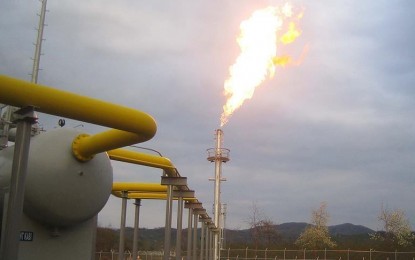
BRUSSELS– European Union (EU) leaders were unable to agree on a way to tackle rising energy prices despite marathon talks on the second day of the EU summit on Friday.
"Today, we discussed energy-related matters," European Council President Charles Michel told reporters after the summit, adding that the EU leaders "worked all day to be able to show our unity and determination."
He called the matter "very difficult," since its impact has been "felt everywhere in Europe," and stressed that the leaders are willing to cooperate with the European Commission and economic operators to identify "the most effective measures."
Ursula von der Leyen, the head of the European Commission, also confirmed that the summit's participants looked at "various options to cushion the impact of high energy prices on consumers and businesses," including income support, state aid vouchers, reduced taxation, price caps, and modulating prices.
She asserted that it would be essential to address the "root causes of high electricity prices ... and volatile gas prices."
At the request of EU leaders, the European Commission will propose options in May to decouple the gas price from the overall electricity price, she explained.
Von der Leyen stressed that despite the differences in the energy mixes of each EU country, "we need to work together to pull our weight and this is why I advocated for a strong European approach."
For this purpose, the bloc's executive body has proposed joint action on gas procurement using collective bargaining power, as well as plans to boost storage facilities and interconnectedness.
The differences between EU countries were known even before the summit. While Spain, Italy, Greece, Portugal, France, Belgium, and Poland favor intervening in the energy market and limiting prices, Germany, the Netherlands, and the Baltics oppose it.
Defense strategy, situation in Ukraine
The EU leaders on Friday also endorsed the Strategic Compass, the bloc's new defense and security action plan.
The strategy, developed by EU foreign policy chief Josep Borrell, seeks to set up an EU force of 5,000 troops swiftly deployable in the event of international crises, secure the bloc against cyberattacks, and ensure smarter joint use of European military capabilities in line with NATO requirements.
On the first day of the summit, EU leaders discussed the situation in Ukraine and US President Joe Biden also joined part of the discussion.
"We will further increase our support to Ukraine. We will sharpen our sanctions, and we will break free from Russian fossil fuels," von der Leyen summarized at the outcome of the talks.
The leaders agreed to set up a Ukraine Solidarity Trust Fund to support Ukraine in mid- and long-term reconstruction.
They also discussed new sanctions on Russia, including measures targeting the energy sector, but were unable to find a common position and only agreed on closing loopholes from previous sanctions.
At the same time, the EU and US reached a new deal on supplying an additional 15 billion cubic meters of liquified gas from the US to the EU this year to reduce dependency on Russian gas. (Anadolu)
Source: Business Diary Philippines



0 Comments